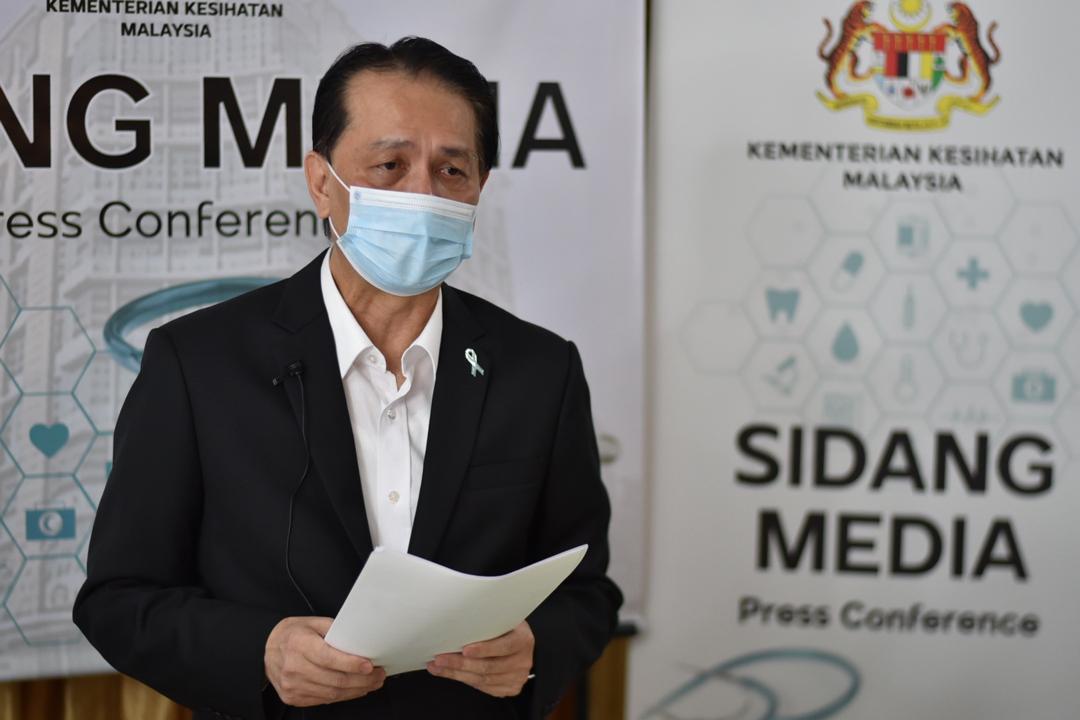KUALA LUMPUR, Dec 14 – Health director-general Dr Noor Hisham Abdullah today described the proposed amendments to Act 342 as a way to “punish” repeat Covid-19 rule breakers, especially big corporations that he claimed are responsible for many industrial clusters and coronavirus deaths.
Dr Noor Hisham said higher compounds and penalties proposed under the amendment Bill of the Prevention and Control of Infectious Diseases Act 1988 (Act 342) allow for tougher measures to be taken beyond the current maximum RM1,000 compound that does not distinguish between individual and organisational offenders.
The amendment Bill moots a maximum compound of RM1 million for corporate bodies and RM10,000 for individuals who are “reasonably suspected” of committing an offence. Compounds are offered by enforcement officers for people to avoid prosecution in court.
“For example, if the cluster involves a particular company that resulted in many deaths and recurrences, it means that improvements proposed to the company were ignored, so [the amendments] allows us to take more severe action against such companies,” he told reporters in a briefing today.
“What is clear to us is we cannot use the RM1,000 cap for both individuals and corporations – that is very clear. So, we have to separate the punishment for individuals and corporate entities.
“And for companies, the compound amount will depend on if they are a first-time offender, repeat offender, and the harms they present based on our risk evaluation. If their offence involves the loss of lives, we will have to take tougher measures against the entity,” he said.
The Health DG’s claim linking standard operating procedure (SOP) breaches to infection and even deaths from Covid-19, a highly transmissible virus, ignores the fact that with widespread community transmission, the index case is rarely identified.
Due to the extent of the epidemic, with now about 4,500 daily new cases reported on average, health authorities are unable to pinpoint exactly how a person got infected. Even with clusters, unless genomic sequencing is conducted to identify similar strains between one infected person and another infected close contact, it cannot be assumed that every person in the cluster was infected at the place where the first case was discovered.
Dr Noor Hisham also acknowledged that companies can be prosecuted in court instead of compounded.
General penalties upon conviction under the current version of Act 342 already provide imprisonment of up to two years, a fine, or both for a first offence; as well as imprisonment not exceeding five years, a fine, or both for a second or subsequent offence.
The amendment Bill proposes general penalties upon conviction of a jail term of up to seven years for individual offenders and a maximum fine of RM100,000, while convicted corporate bodies can be fined up to RM2 million.
While the amendment Bill was already tabled in Dewan Rakyat for first reading today, Dr Noor Hisham said guidelines for compounds and regulations have not been not prepared yet. He said regulations relating to Act 342 do not need to go through Parliament as they are under the health minister’s purview.
“What we’re looking at now is the overall amendment. What we can agree upon now is that the RM1,000 compound amount is too low for corporate bodies – so we need to raise this. The issue now is by how much. We have some suggestions on the compound amount that will be tabled in Parliament and the guidelines for first-time and repeat offenders that will be discussed in the regulations.
“Right now, we don’t have the regulations. We just have a general suggestion that is up for discussion and these regulations will be further refined for each compound that will be issued,” Dr Noor Hisham said.
MOH’s disease control division director Dr Norhayati Rusli said the MOH has prepared a detailed guideline for compounds, not just the compound amount, but the type of offence and the payment period.
“Before a compound is issued, we will conduct an assessment to identify if the offence falls under Categories One, Two, or Three where each category is ranked based on the severity of the offence – whether it has a high, medium, or low rate of transmission.
“This evaluation will be conducted by the authorised officer, and they will then determine the type of compound that will be issued to the offender,” Dr Norhayati said.








